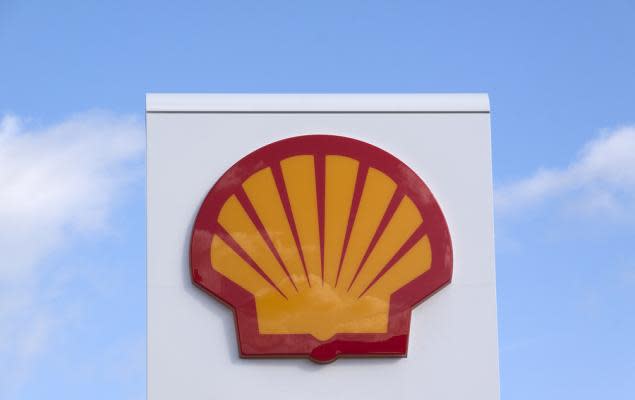Shell (SHEL) to Boost Production Despite Macroeconomic Challenges

Shell plc SHEL, the British multinational oil and gas company, plans to increase its oil production in Argentina's Vaca Muerta shale formation by 5,000 barrels per day (bpd) to reach 50,000 bpd by the end of the year. This is even though Argentina has imposed price restrictions on crude oil, which could make it less profitable for Shell to invest in the country. Let’s delve into Shell's plans, the unique qualities of Vaca Muerta and the hurdles faced by the company in achieving its objectives.
The Importance of Vaca Muerta
Vaca Muerta holds a significant position in the global energy landscape. It boasts the world's second-largest shale gas reserves and the fourth-largest shale oil reserves. This vast formation has become a key component of Argentina's energy strategy, as the country aspires to transform into an energy exporter and ship liquefied natural gas (LNG).
Shell's Role in Vaca Muerta
Shell is a prominent player in Vaca Muerta, holding the position of the second-largest crude oil producer in the region, trailing behind Argentina's state-run oil company — YPF Sociedad Anonima YPF. SHEL’s involvement in Vaca Muerta is not a recent development. It has been investing significantly, contributing to the formation's growth and potential.
Ricardo Rodriguez's Vision
Ricardo Rodriguez, Shell's CEO in Argentina, is the driving force behind the company's expansion plans in Vaca Muerta. Speaking at an oil and gas conference in Buenos Aires, Rodriguez expressed his optimism about the region's potential, emphasizing the "phenomenal" quality of Vaca Muerta's resources.
The $500-Million Question
To achieve its goal of increasing production by 5,000 bpd, Shell recognizes the need for substantial investment. Currently, the company allocates approximately $500 million annually to its operations in Vaca Muerta. Rodriguez expects Shell to contribute further to the region's growth.
Macroeconomic Challenges
Despite the potential of Vaca Muerta, Shell faces a set of macroeconomic challenges that necessitate careful consideration. Rodriguez acknowledges that macroeconomic pressures are affecting the company's investment decisions. Of these, two significant hurdles are worth highlighting:
Currency Access Restrictions
Access to foreign currency is significant to Shell's operations, as it relies on global markets for funding and procurement. However, Argentina's strict exchange controls have made obtaining foreign currency increasingly challenging. This limitation adds complexity to Shell's decision-making process.
Price Regulations
Another obstacle on Shell's path to expansion in Argentina is the country's price regulations. In August, Argentina decided to freeze the domestic crude oil price at $56 per barrel, a move intended to combat triple-digit inflation. While this measure may have its merits, it affects the profitability of oil producers operating in the region, including Shell.
The Need for Favorable Conditions
In the words of Rodriguez, "To invest more, we have to have those conditions ... that make sense to invest more." It's evident that Shell is keen on expanding its presence in Vaca Muerta, but the company is also committed to making financially prudent decisions.
Competitive Disadvantages
Rodriguez highlights a stark contrast between Argentina and other countries. While Shell's colleagues in Brazil or Mexico enjoy the benefits of a free market price for oil, Argentina's price controls create a significant difference in competitiveness. This disparity underscores the importance of favorable economic conditions for oil and gas companies operating in the region.
Conclusion
Shell's plans to increase its oil production by 5,000 bpd in Argentina's Vaca Muerta shale formation represent a bold and commendable move. However, the company faces formidable challenges, including currency access restrictions and price regulations. To succeed, Shell must navigate these hurdles while maintaining its commitment to responsible and sustainable growth.
Zacks Rank and Key Picks
Currently, both SHEL and YPF carry a Zacks Rank #3 (Hold).
Some better-ranked stocks for investors interested in the energy sector are CVR Energy CVI, sporting a Zacks Rank #1 (Strong Buy), and Archrock AROC, carrying a Zacks Rank #2 (Buy) at present. You can see the complete list of today’s Zacks #1 Rank stocks here.
CVR Energy is valued at $3.57 billion. In the past year, its shares have risen 7.1%.
CVI currently pays a dividend of $2 per share, or 5.64% on an annual basis. Its payout ratio currently sits at 30% of earnings.
Archrock is valued at around $1.97 billion. It delivered an average earnings surprise of 15.08% for the last four quarters and its current dividend yield is 4.93%.
Archrock is a provider of natural gas contract compression services and aftermarket services of compression equipment.
Want the latest recommendations from Zacks Investment Research? Today, you can download 7 Best Stocks for the Next 30 Days. Click to get this free report
CVR Energy Inc. (CVI) : Free Stock Analysis Report
YPF Sociedad Anonima (YPF) : Free Stock Analysis Report
Archrock, Inc. (AROC) : Free Stock Analysis Report
Shell PLC Unsponsored ADR (SHEL) : Free Stock Analysis Report
